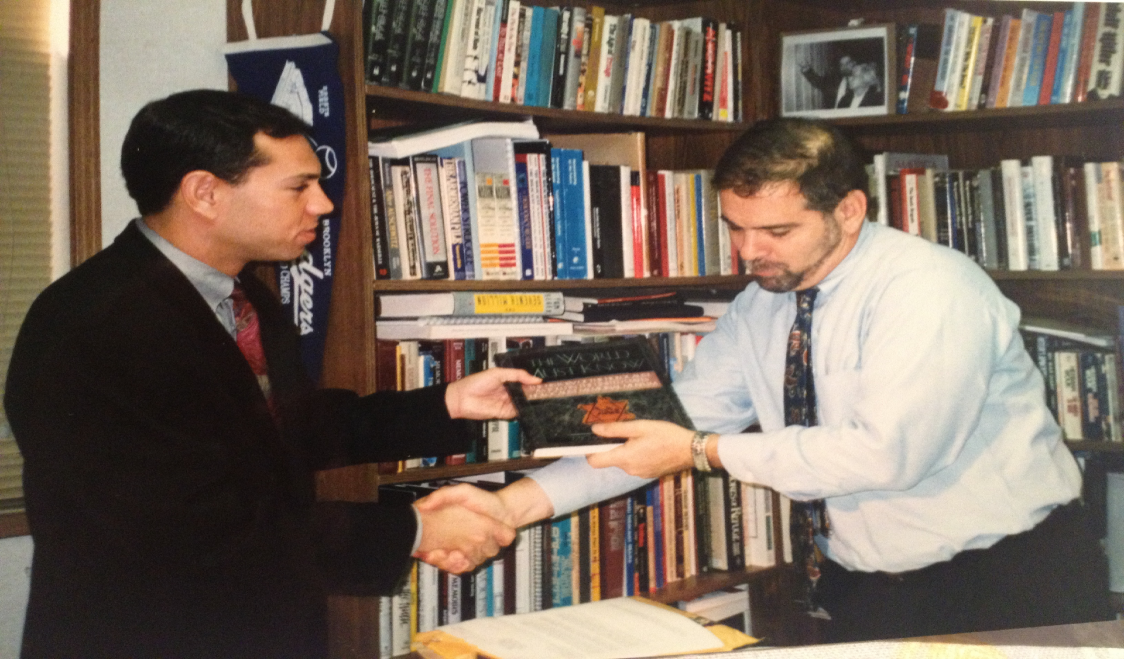I think that there are a lot of good people who question why Jews continue to talk about the Holocaust and anti-Semitism. I also believe that if those folks knew what it was like to experience the cruel illogic of being constantly hated because you’re Jewish, they’d understand that it’s a subject that must be talked about — whether we want to or not.
Until it’s gone.
The AJC just released a new study on the rising level of anti-Semitism in the U.S. — and its effects. Among Jewish Americans under the age of thirty, 84 percent have experienced hateful rhetoric towards their background online.
This ugly bigotry affects people’s lives. And it is one of the main reasons that I was totally enthusiastic about co-authoring Ethical Tribing with Joanna Landau. It is in that spirit that I would like to share with you my piece of the Preface to our new book.
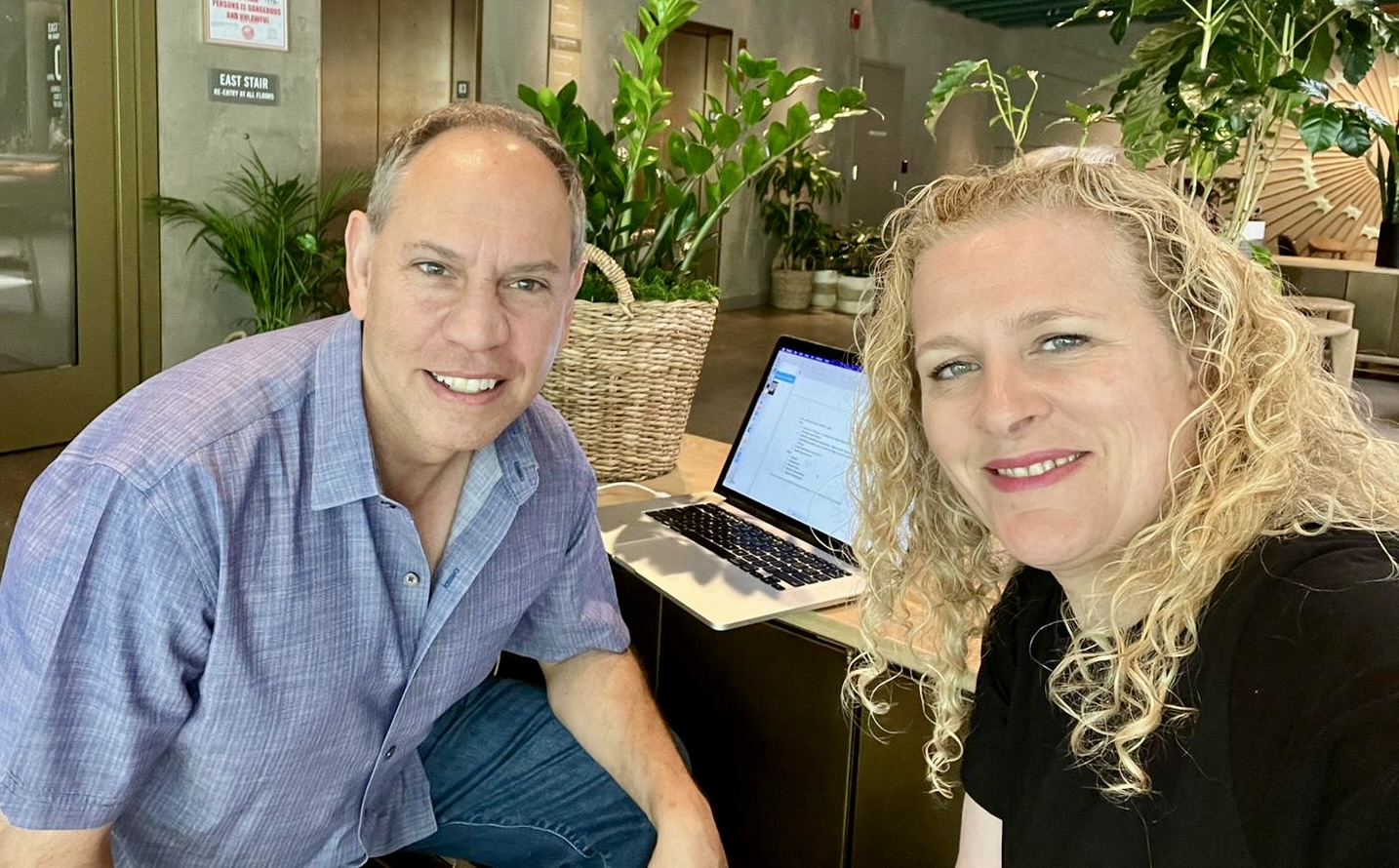
MICHAEL’S STORY: OUR HOME IS OUR FUTURE
It was an icy night in Chicago more than twenty-five years ago when I first interviewed a survivor of the Holocaust. Margot and Charles Schlesinger were two out of the 1,200 SchindlerJuden who had survived the Shoah under the protection of industrialist Oskar Schindler.
As the three of us talked about Steven Spielberg’s new film, Schindler’s List, Mrs. Schlesinger described the scene that for her was the most chillingly real to watch:
“Auschwitz was the most moving part, because I was there. And I didn’t know whether there was water or gas coming out of the pipes. And it was horrifying to see the kids being taken to Auschwitz to be gassed as the German lullaby was being played over the loudspeaker.”

I will never forget Margot and Charles Schlesinger’s words from that night, just as I will never forget the stories of the many Holocaust survivors whom I came to know and be awed by over the next three decades.
Just a few years later, in 1999, I found myself standing in Independence Hall in Tel Aviv, singing Hatikva. It was my first visit to Israel, which had just celebrated its 51st anniversary as the official State of the Jewish people. As I listened to the sound of Israel’s national anthem, I could feel the knot swelling up in my throat. This was not my home country, yet the sense of national pride I felt at that moment was palpable.
Of the nearly 8 billion people on Earth today, just over 15 million are Jews. Each of us has our own story and personal connection to Judaism. And we all have our own definition of what it means to be Jewish.
In my case, I was born in 1967 at Chicago’s Mount Sinai Hospital to two Jewish parents. I grew up as a Reform Jew, the most liberal strand of Judaism. My family celebrated a handful of Jewish holidays and I attended Hebrew school through age thirteen, when I became a bar mitzvah. Yet, as with so many Jewish Americans over the past few decades, those early years of Reform practice did not inspire in me a deep sense of Jewish identity.
Ironically, it was a course on Jewish history during my time as an undergraduate that finally piqued my interest on what it meant to be a descendant of the Jewish people. Once I delved deeper into the backstory of how Jews had miraculously survived and rebuilt their Tribes again and again — from exile in Babylon to persecution under the Romans to the Spanish Inquisition to Hitler’s genocidal Final Solution — that’s when my identity as a Jew really began to take root.
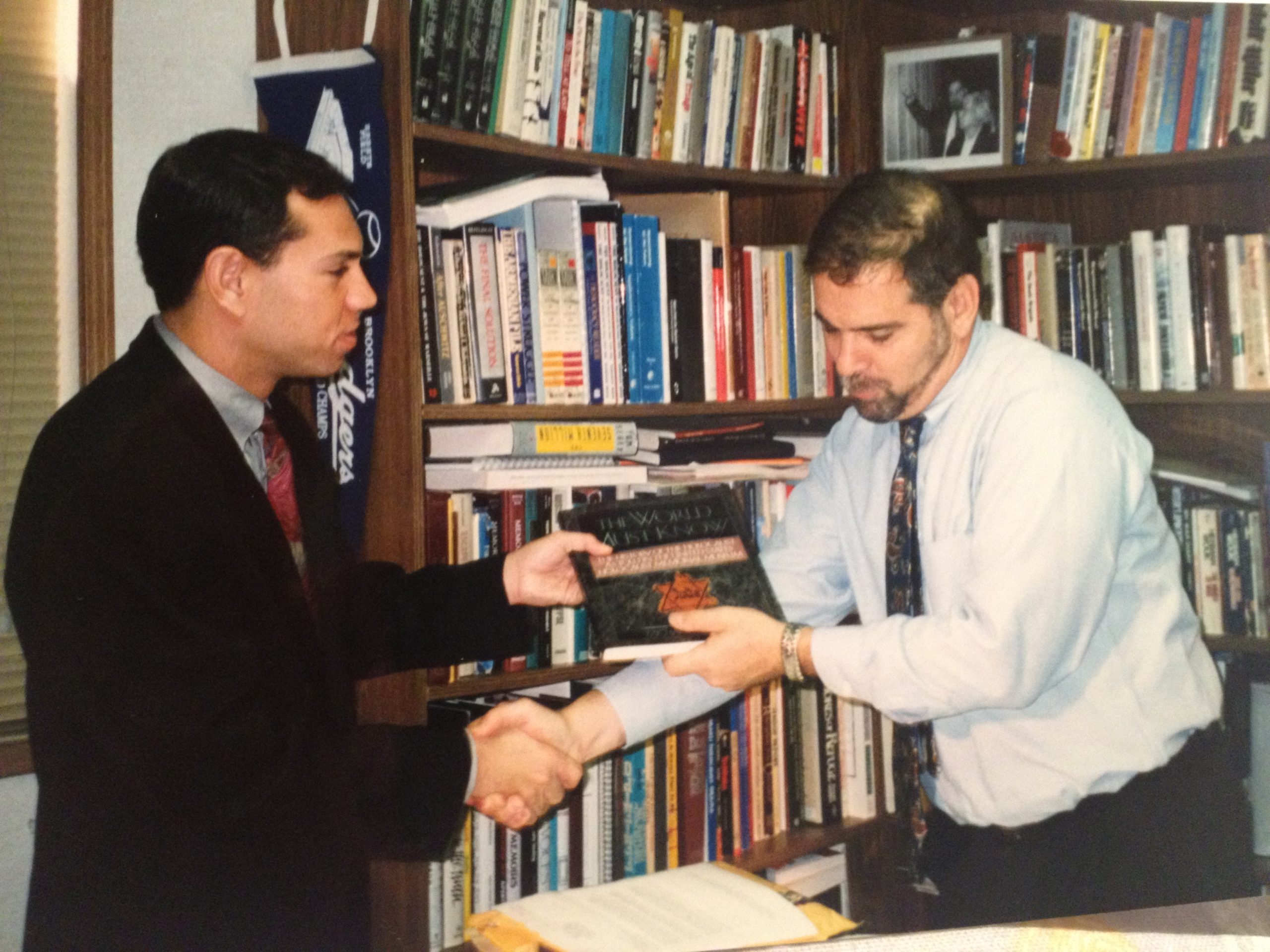
Of course, Jews fall across a wide spectrum when it comes to how and why we identify as Jewish. This is especially the case in America. But the common tie that always seems to bind us is the shared sense of pride we take in our unlikely survival. Jewish existence is about far more than a formal religion; we are the Jewish People. By battling our way through an unremitting progression of existential threats and excruciating struggles — and also by achieving exhilarating triumphs — the Jewish People have developed a uniquely rich culture and impregnable sense of community.
That seminal day when I met Margot and Charles Schlesinger set me on a course of caring about and becoming engaged in Jewish advocacy, mostly through “lay leadership.” Over the years, I raised funds for the US Holocaust Memorial Museum, supported IDF soldiers, advised Jewish leaders on messaging and communications, and helped more survivors to share their experiences and wisdom with the world.
But the most eye-opening time that I spent in Jewish advocacy was when I worked full time in 2001–02 as a public voice for the Anti-Defamation League’s Midwest office. Across six states, the incoming assaults we pushed back against every day ran the gamut: attacks on Jewish elected officeholders, anti-Semitism on college campuses, the KKK’s heinous marches, and so on. We were busy.
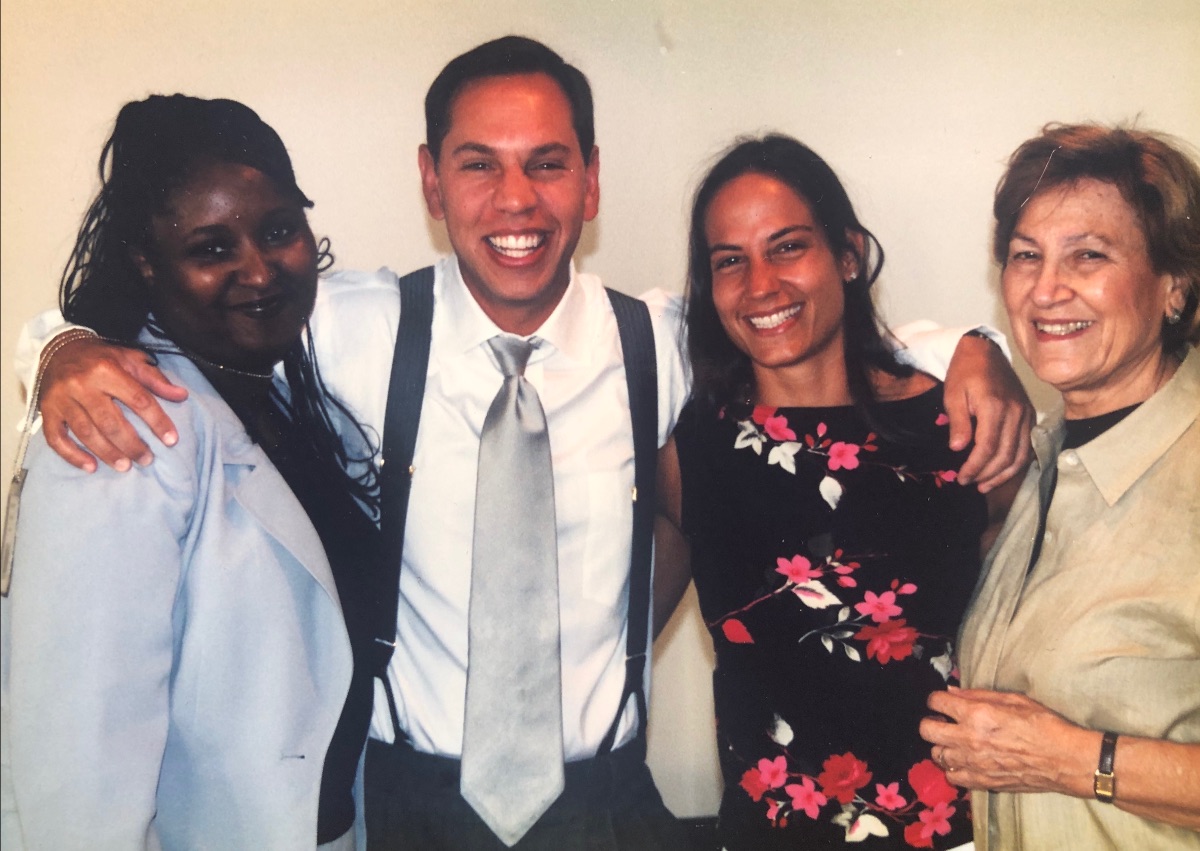
Unfortunately, and unsurprisingly, Jewish advocacy professionals are still busy. They are always busy. And I believe that the rest of us are in their debt. The work that they do is truly difficult — and unfailingly necessary. In fact, the incidence of anti-Semitic acts in the United States rose to a record high in 2021.
We know how important traditional advocacy is in fighting anti-Semitism and in providing critical support to the State of Israel. But this is not one and the same with shaping how people feel about our home country as a whole. Especially young people. I’m not talking about changing the set opinions that many folks have about government policy. I’m talking about sharing with them everything else there is to love about Israel. While there is much daylight between these two missions, they are crucially related. One effort augments the other.
Many Jewish Americans have a very different sensibility than do Israeli Jews when it comes to beliefs about the best courses of action to defend and protect Israel. How could they not be different? There is no way for Americans to understand the complexities of living as a citizen of Israel — unless and until they’ve become a citizen of Israel.
Yet what we do share is the imperative priority to always keep Israel as the indispensable home of the Jewish People. Though the painful history that Jews have endured and survived shall never fully define us, there is no question that our people have learned how to convert the past into a constantly renewable source of energy to drive us forward.
It was during an impassioned conversation I was having about all of this with my friend Alicia that I met Joanna. As our exchange became more and more intense — we were in violent agreement — all of a sudden Alicia’s face lit up and she started telling me about Vibe Israel and Joanna’s vision for Israel. Then she called Joanna in the middle of the night in Tel Aviv and put me on the line. In minutes, a partnership was born.
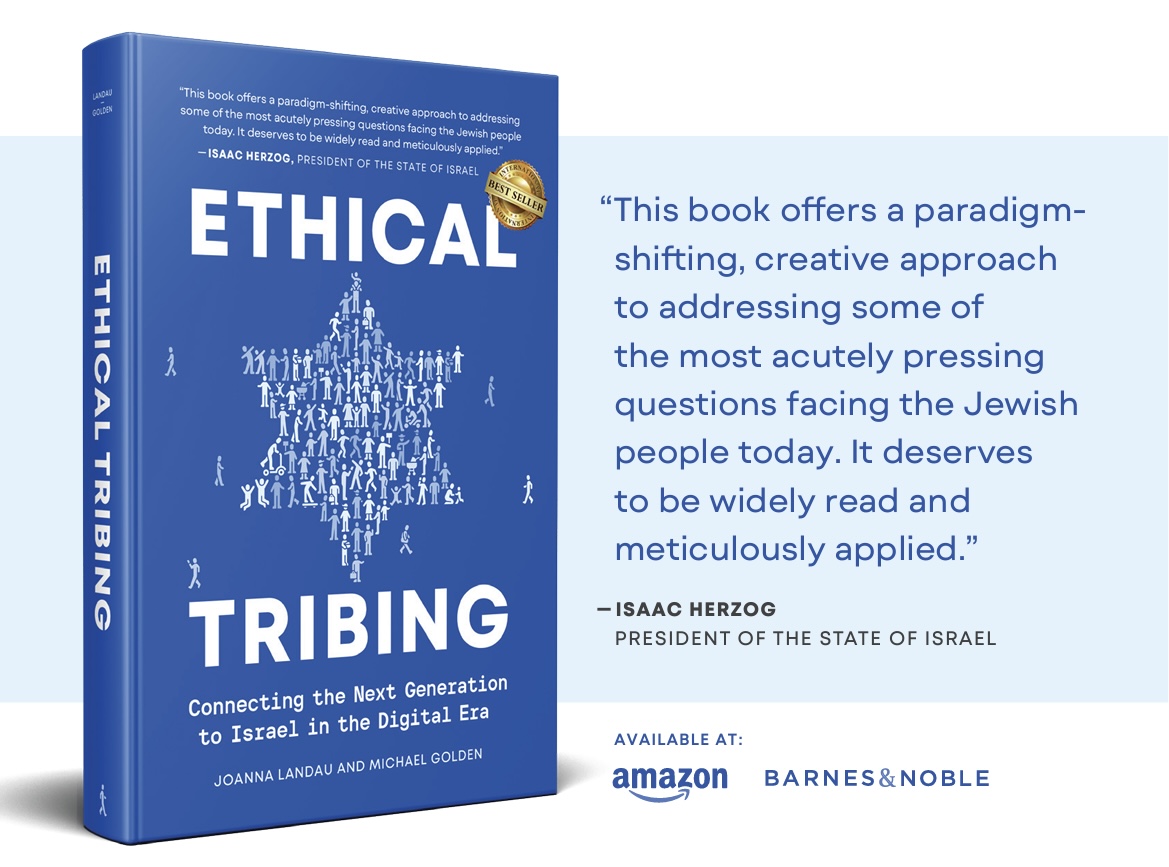
After having worked as a television news reporter and political strategist for nearly twenty years, I have leveraged the power of storytelling again and again to deliver information — and to shape perspectives and decision-making. Understanding where an audience is coming from and then meeting them where they’re at — so that a message will land and stick — is both a science and an art. Joanna and I clicked on this shared experience instantaneously.
Over the next year, as I worked with Joanna and her exceptional team, the value of her philosophy became even clearer to me. A bona fide visionary, she was at an inflection point where she was ready to take the decade-plus expertise she’d accrued as founder and CEO of Vibe Israel, and scale its reach and impact to a whole new level. Better yet, she’d already began assembling the elements of the formula.
When Joanna started mapping out the plan to put this mission on steroids to meet the urgency of the moment, that’s when we became inspired to co-present this strategy we call Ethical Tribing. For without its adoption and expeditious application, we fear the Jewish People may be missing out on an irreplaceable opportunity to change not only the way that Israel is perceived — but how it is treated by other nations as a result.
It is a precarious time, as the Next Generation may be our final firewall. Yet we have a strategy to get there: a course we can chart to win millions of minds and hearts. All that we need is the will to cast off together and a commitment to keep steering the ship in the right direction.
###
On that first trip I took to Israel twenty years ago, I broke away from my travel mates one day to return to Yad Vashem. It was a sunny afternoon, and after exiting the museum, I sat down in an area known as Warsaw Ghetto Square. I gazed up at two visually breathtaking memorial sculptures titled The Warsaw Ghetto Uprising and The Last March. As I prayed for all of the souls that were stolen and the families that they were lost to, I scrawled down the following:
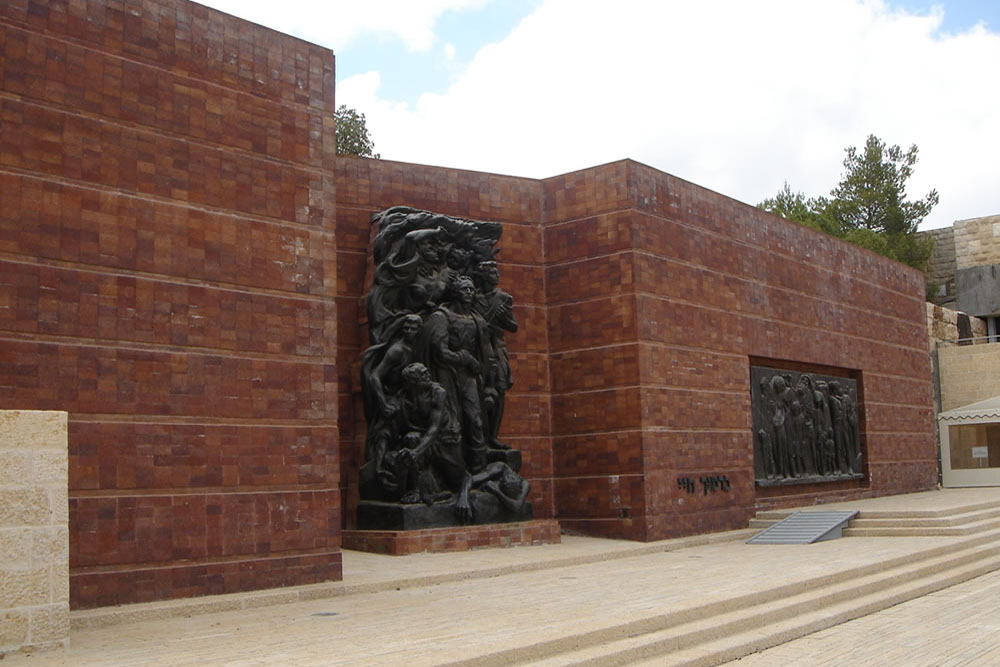
“Even as I examined the enlarged, graphic photos in the museum exhibits, the concept of 6 million Jews being systematically annihilated is still difficult for my mind to grasp. ‘Six million.’ I’ve heard the number so many times and heard so many survivors tell me their stories — and yet it is still hard for me to process. I am so proud to have known these survivors, and I am proud to be a Jew. I have felt this pride every minute of every day since I arrived in Israel.”
Twenty years later, that same sense of pride is what inspired me to take on this critically important project with Joanna. From the deepest part of our hearts, we believe in the potential that Ethical Tribing can deliver to the country that we love. And now, it is our job to make you believe.
For your open minds and your careful consideration of the case we are about to present, we most sincerely thank you.



